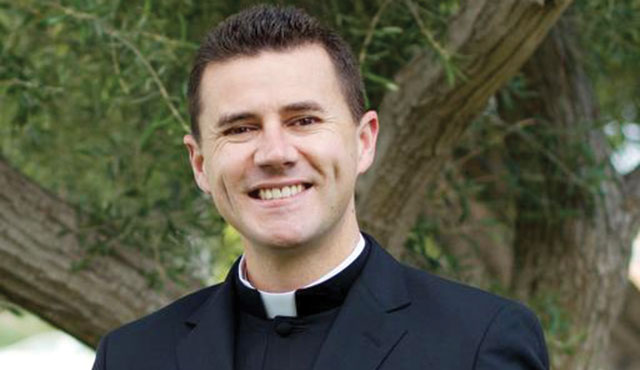These are tumultuous times, and societal tensions are extremely high. We are in the throes of a pandemic the likes of which the world has not seen for more than 100 years; societally, we are enduring a breakdown in Judeo-Christian morality reminiscent of ancient pagan Rome; and now, as if to add insult to injury, the U.S. faces one of the most-heated election cycles in recent memory. And it is precisely about that election that we need to talk.
Now, before you get nervous, fear not. I will not be telling you what to do in the ballot box on Nov. 3. It is not the job of a priest of the Catholic Church to tell you for whom you should vote, but rather to assist our people to form their consciences well in line with the Church’s moral teaching. As such, given that there is a great deal of confusion out there as to what the Church teaches regarding voting, here are three main principles that can help you to make your electoral choices.
The first principle is that the Catholic moral theological tradition does not consider all moral matters to be equally important. Among the many significant issues for our adjudication, the question of procured abortion is the preeminent issue for our discernment because all other issues depend on protecting the inalienable right of all human beings to life. Alongside abortion, the Church also privileges the defense of life at the end of its journey as similarly important. Thus, we cannot ever promote so-called “euthanasia” (“mercy killing” or “assisted suicide”). Of course, being “pro-life” does not only mean protecting the right of children to be born, or the right of the sick and elderly to a natural death; rather, the Church also believes in protecting life at all its stages, and this means taking many other issues that threaten life into our consideration (such as poverty, racism, threats to the environment, etc.).
The second principle is the fact that both American political parties often support positions with which the Church cannot agree. Neither political party is entirely acceptable in terms of the Church’s social doctrine. Being Catholic cannot be seen as identical with being either a Democrat or a Republican, even if some may certainly, and justifiably, argue that one party’s official platform is more acceptable to the Church than the other’s in terms of certain issues (such as abortion and euthanasia). We are always Catholics first, partisans of political organizations second.
Finally, the third principle is a practical guide to what this means in terms of our decision-making process. This principle has been best expounded by the then-Cardinal Joseph Ratzinger, the one-time Pope Benedict XVI, while he was prefect of the Congregation for the Doctrine of the Faith in 2004. In a letter written to an American Cardinal at that time, entitled “Worthiness to Receive Holy Communion: General Principles”, Cardinal Ratzinger says the following:
A Catholic would be guilty of formal cooperation in evil, and so unworthy to present himself for Holy Communion, if he were to deliberately vote for a candidate precisely because of the candidate’s permissive stand on abortion and/or euthanasia. When a Catholic does not share a candidate’s stand in favor of abortion and/or euthanasia but votes for that candidate for other reasons, it is considered remote material cooperation, which can be permitted in the presence of proportionate reasons.
So, in summary, while it is necessary that we protect human life at all its stages, and our voting choices must reflect this, at the same time we are permitted to choose between very imperfect candidates and to vote for one or the other in spite of certain positions they might hold, if there are proportionate reasons for us to do so. Moreover, we can also justly choose to vote for neither candidate, if our well-formed consciences dictate that neither candidate is worthy of our vote. While we consider these matters, though, we must always remember that abortion and euthanasia are tremendous moral evils that must take precedence in our discernment.
Yours in the Lord,
Fr. William Goldin

